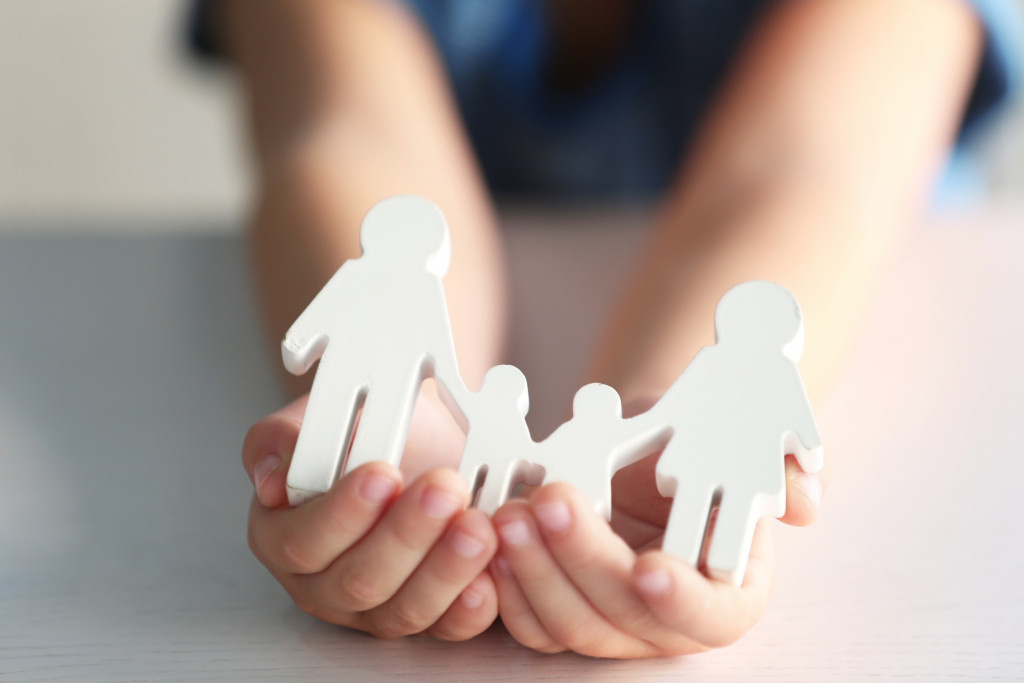Do you know why adoption is an exciting and scary prospect at the same time? It’s not because there’s something wrong with it. There is probably nothing nobler than opening your hearts and doors to a stranger. But the problem with adoption lies when the rest of the family and even the adoptee do not understand what is happening. Most of the time, the process begins and ends way too fast for everyone to keep up. Sometimes, even one of the partners in the marriage ends up getting confused about the why and how of the adoption.
When things are not clear, relationships tend to get severely and adversely affected. Your biological kids (if you have any) will struggle with their feelings about welcoming a stranger into their home. It’s the same feeling that the adoptee might experience. Why me? Is something wrong with others? What will happen with my biological siblings or the children left in the adoption house? These are very valid feelings that, when neglected, can end up hurting the whole family.
Work with a Lawyer and a Psychologist
Once you decide to adopt, immediately hire a lawyer and a psychologist. Your willingness to adopt should also equal your willingness to spend on their professional services. Family law attorneys will help you deal with the legality of the adoption, as well as future scenarios such as divorces and custody. On the other hand, psychologists and counselors will help you as a family deal with the sudden change in dynamics.
How your birth children feel about the adoption matters most, especially because they’re the ones who need to adjust the most if your adoptee is still a baby. If the adoptee is already a toddler or someone older, that’s all the more reason you need professional help. Even though your kids (biological and adopted) look okay with the new setup, there might be demons hiding in their closets. It’s best to know about these as early as possible.
Your Birth Children Might Feel Inadequate
Before you dive into the adoption process, make sure your birth children are truly okay with it. If they are old enough to express themselves, then ask them about welcoming a sibling into your home. If they are too young, then still communicate with them. Even when they can’t express themselves verbally yet, you must be attuned to changes in their moods and behaviors when the subject of adoption takes place.
A lot of them might feel inadequate. Why do you need to adopt someone else? Are they not enough? Are they lacking? Make sure there are no feelings like these. No matter how good your intentions are, that should never be more important than how your children feel.

Your Adopted Kids Might Face Identity Issues
Adopted kids will feel a lot of pressure growing up, especially if they don’t look the same as their siblings or the rest of the community and school. If you adopt an Asian kid to the United States, there may be issues on how they can fit in. Make your family as welcoming as possible, but also don’t deny that racial problems still exist in today’s progressive society.
As they grow older, adopted kids will face identity issues. They will start to question their histories—where did they come from, who are their birth parents, what happened to their blood relatives? These and many questions will hound them for the rest of their lives. Some adopted kids manage enough to move on, but others feel the need to answer these questions.
Your Partner Might Deal with Being Out of Control
Do you and your partner see eye to eye about adoption? Do they also like to adopt? Sometimes, partners tend to agree to what their loved ones want because it will make them happy. But over time, that selflessness turns into self-doubt. What have I gotten myself into? Am I ready to welcome an adopted child? This is why it’s always important to communicate your feelings.
Adoption shouldn’t be something that you force on your partner. Don’t feel bad, too, if they might never be ready for the idea of adopting someone. It’s a big step to take and one that needs careful consideration from you, your partner, and the rest of the family.
The long-term effects of adoption on the family that did the adoption and the child who was adopted are manageable only when the relationships are healthy enough. So, from the beginning, strive to have a kind of relationship that nourishes rather than judges. If everyone feels comfortable about sharing their feelings, then addressing these problems becomes easier.

